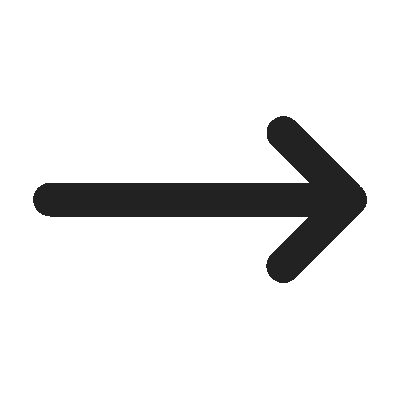What is a Google penalty?
A Google penalty is a punishment given to websites that violate Google’s webmaster guidelines. It can result in a significant drop in search rankings or even the complete removal of the website from Google’s search results. Penalties can be either manual or algorithmic. Manual penalties are imposed by Google’s human reviewers, while algorithmic penalties are automatically applied by Google’s search algorithms, such as Panda and Penguin.
How do I know if my website has been penalized by Google?
Identifying a Google penalty can be challenging, but there are a few signs to look out for. A sudden drop in search traffic or rankings is one of the most common indicators. You can also check Google Search Console for any manual action notifications. If you don’t see a manual action but still notice a significant drop in traffic, it might be an algorithmic penalty. Additionally, using various SEO tools to analyze your website’s performance can help identify potential issues.
What are the common reasons for Google penalties?
Google penalties are typically imposed due to violations of Google’s webmaster guidelines. Common reasons include keyword stuffing, cloaking, duplicate content, spammy backlinks, and thin content. Other reasons can include hidden text or links, sneaky redirects, and participating in link schemes. Ensuring your website follows Google’s guidelines and maintaining high-quality content is crucial in avoiding penalties.
How can Google Penalty Recovery Services help my website?
Google Penalty Recovery Services specialize in identifying and resolving issues that led to your website’s penalty. These services include a thorough audit of your website to uncover any violations of Google’s guidelines. After identifying the issues, they implement strategies to rectify them, such as disavowing harmful backlinks, removing duplicate content, and improving overall site quality. The goal is to restore your website’s rankings and traffic by ensuring it complies with Google’s guidelines.
What is the difference between manual and algorithmic penalties?
Manual penalties are issued by Google’s human reviewers who manually check websites for violations of Google’s webmaster guidelines. If they find any issues, they impose a manual action which is communicated to the website owner via Google Search Console. Algorithmic penalties, on the other hand, are automatically applied by Google’s algorithms. These penalties don’t come with specific notifications, making them harder to identify. Algorithmic penalties are usually a result of updates to Google’s algorithms, such as Panda or Penguin, which target low-quality content and spammy backlinks respectively.
How long does it take to recover from a Google penalty?
The recovery time from a Google penalty varies depending on the severity of the penalty and the actions taken to resolve it. Manual penalties can be lifted relatively quickly once the necessary changes are made and a reconsideration request is submitted and approved by Google. This process can take anywhere from a few weeks to a couple of months. Algorithmic penalties may take longer to recover from, as they often require significant changes to the website’s content and backlink profile. Recovery from algorithmic penalties can take several months or more, depending on the frequency of Google’s algorithm updates and the extent of the issues.
What steps are involved in recovering from a Google penalty?
Recovering from a Google penalty involves several steps. First, it’s essential to identify the type of penalty—manual or algorithmic. For manual penalties, you need to check Google Search Console for any notifications. For algorithmic penalties, you’ll need to analyze your website’s traffic patterns and identify any correlations with Google algorithm updates. Once the penalty is identified, the next step is to conduct a comprehensive audit of your website to pinpoint the issues. This audit includes checking for spammy backlinks, duplicate content, keyword stuffing, and other violations of Google’s guidelines. After identifying the problems, the next step is to fix them. This can involve disavowing harmful backlinks, removing duplicate content, improving the quality of your content, and ensuring your website follows best SEO practices. Finally, for manual penalties, you need to submit a reconsideration request to Google, explaining the steps you’ve taken to resolve the issues. For algorithmic penalties, you’ll need to wait for Google’s algorithms to re-evaluate your website, which can take time.
Can I recover from a Google penalty on my own?
While it is possible to recover from a Google penalty on your own, it can be a complex and time-consuming process. It requires a deep understanding of Google’s guidelines and the ability to conduct a thorough audit of your website. If you’re not experienced in SEO or penalty recovery, it might be challenging to identify and resolve all the issues. Hiring a professional Google Penalty Recovery Service or Consultant can expedite the recovery process and increase the chances of successfully lifting the penalty.
How much do Google Penalty Recovery Services cost?
The cost of Google Penalty Recovery Services can vary widely depending on the severity of the penalty and the scope of the work required. Prices can range from a few hundred dollars to several thousand dollars. Some services charge a flat fee, while others charge an hourly rate. It’s essential to get a detailed quote and understand what services are included before committing to a penalty recovery service.
What should I look for in a Google Penalty Recovery Consultant?
When choosing a Google Penalty Recovery Consultant, it’s important to consider their experience and track record. Look for consultants who have a proven history of successfully recovering websites from penalties. They should have a deep understanding of Google’s guidelines and be able to conduct a comprehensive audit of your website. Additionally, good communication skills are crucial, as they’ll need to explain the issues and the steps required to resolve them clearly. Checking client testimonials and reviews can also provide insight into their effectiveness and reliability.
Will my website fully recover its previous rankings after the penalty is lifted?
While it is possible for your website to recover its previous rankings after a penalty is lifted, it’s not guaranteed. The extent of the recovery depends on several factors, including the severity of the penalty and the actions taken to resolve the issues. In some cases, websites can regain their previous rankings and even improve their search performance by implementing best SEO practices. However, it’s important to manage expectations and understand that recovery can take time and ongoing effort.
Can future Google penalties be prevented?
Preventing future Google penalties involves maintaining a high standard of quality for your website and adhering to Google’s webmaster guidelines. This includes avoiding black hat SEO techniques such as keyword stuffing, cloaking, and participating in link schemes. Regularly auditing your website for potential issues and staying updated on changes to Google’s algorithms and guidelines can also help prevent penalties. Additionally, focusing on providing valuable, high-quality content and a positive user experience is crucial in maintaining good standing with Google.
How do I submit a reconsideration request to Google?
Submitting a reconsideration request to Google involves several steps. First, ensure that you’ve identified and resolved all the issues that led to the penalty. Once you’re confident that your website is in compliance with Google’s guidelines, log in to your Google Search Console account. Navigate to the “Security & Manual Actions” section and click on “Manual Actions.” Here, you’ll see the details of the penalty. Click on “Request a Review” and provide a detailed explanation of the steps you’ve taken to resolve the issues. Be honest and transparent in your request, and include any supporting documentation or evidence. After submitting the request, it may take a few weeks to receive a response from Google.
What is the role of backlinks in Google penalties?
Backlinks play a significant role in Google’s search algorithm, and having a healthy backlink profile is crucial for maintaining good search rankings. However, low-quality or spammy backlinks can lead to penalties. Participating in link schemes, buying links, or generating artificial backlinks can trigger a penalty from Google. It’s important to regularly monitor your backlink profile and disavow any harmful or irrelevant backlinks. Building high-quality, natural backlinks through genuine relationships and valuable content is essential in avoiding penalties.
Can duplicate content cause a Google penalty?
Yes, duplicate content can cause a Google penalty. Duplicate content refers to content that appears on multiple pages within the same website or across different websites. Google aims to provide unique and valuable content to its users, and duplicate content can dilute the search experience. It’s important to ensure that your website has original, high-quality content on each page. If you have duplicate content, consider using canonical tags to indicate the preferred version of the content or rewriting the content to make it unique.
Brand Markting
Marketing Strategy
Content Marketing
SEO Marketing
Programmatic Marketing
Fractional CMO
Paid Search Marketing
Email Marketing

